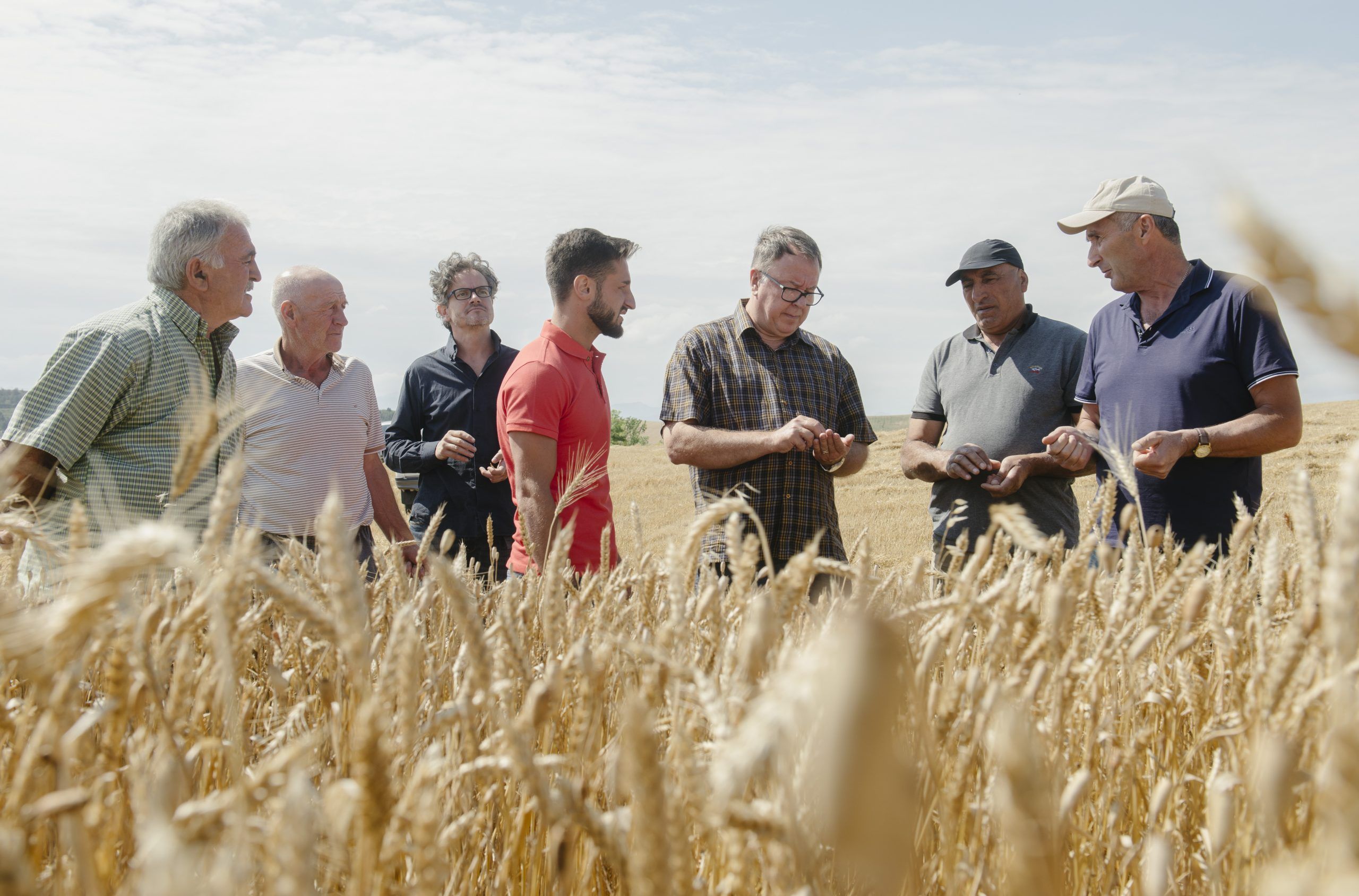
Georgian farmers increase yields and lower costs with new environmentally friendly techniques introduced by EU and FAO
With almost half of Georgians involved in agriculture, any improvements in farming will have a big impact. Since 2019, the EU and FAO have been working together under the third phase of the ENPARD programme to bring modern and environmentally friendly agriculture techniques to Georgia by arranging demonstration plots and farmer extension services. This harvest the results are in – Georgian farmers significantly increase yields and lower costs by about 30%.
The results of some of the beneficiary farmers were observed during the recent field visit by EU and FAO representatives to the demo plots in the Gori municipality. Georges Dehoux, Programme Manager for Agriculture, Fisheries and Food Safety at the Delegation of the European Union to Georgia and Javier Sanz Alvarez, FAO Programme Coordinator met with EU and FAO supported local farmers and participated in the harvest.
One of the plots is located near Khurvaleti village of Gori municipality, where local farmer Gela Gogniashvili owns 10 ha wheat plot. In October 2020 Gela decided to join the EU and FAO supported programme and test the no-till method on the half of his land. With EU and FAO support, he was able to use a tractor and a no-till seeder equipment, and FAO agronomists trained him and helped in the monitoring of the plot during the growing period.
Gela Gonashvili said that he made significant economy with the new method as he didn’t have any charges for ploughing, disking or planting. He can already compare his two plots – traditionally processed and with no-till – and according to the preliminary observation, no-till harvest looks healthier and more productive.
The EU and FAO representatives also visited Soso Khuroshvili, local wheat grower farmer, who also planted Georgian variety of wheat “Lomtagori” on his 3-ha land with no-till method. In the previous years, Soso used to get an average harvest of 3 – 3.5 tons per hectare. Like Gela Gogniashvili, this year, Soso too expects better harvest both in terms of quality and quantity of the wheat.
Another local farmer, Gocha Danielashvili also sowed on one hectare with no-till method. He already harvested 3.5 tons per hectare, which is about 800 kilograms more per hectare compared to the previous years.
All farmers confirmed their interest to continue using no-till for the next years, and they expect many other farmers to also join.
“One of the most important elements of the EU aid is the demonstration of the benefits of new agricultural techniques. Today we saw such demonstration on no-till way of growing wheat, and the results are quite spectacular both in terms of productivity and in terms of quality. It’s particularly rewarding to see the interest of the farmers and the commitment that they have towards this new technique, which has the added advantage of contributing to climate change mitigation in the sector.” – stated Georges Dehoux, Programme Manager for Agriculture, Fisheries and Food Safety at the Delegation of the European Union to Georgia
“No tillage is a very promising practice in Georgia, we are seeing a growing interest of farmers, that produce more and save money. From FAO side, we are fully committed in promoting sustainable practices and Climate Smart Agriculture practices, such as no tillage. This also falls under the Green Deal approaches that the EU is promoting in Europe and worldwide.” – Said Javier Sanz Alvarez, FAO Programme Coordinator.
No tillage is an environmentally friendly practice of cultivation of cereals when the farmer doesn’t till the ground, leading to a better soil structure, reduced water evaporation in the field, hence improved use of water, and a reduced use of fuel for tractors. This practice has numerous benefits, as it is significantly less damaging to the soil, leaves less carbon footprint, saves valuable resources and is very cost-efficient.
2021 is the second year implementing demonstration plots on conservation agriculture (no-till practise) in Georgia under EU and FAO ENPARD III project. Since 2019, EU and FAO trained over 1300 farmers in modern agricultural techniques, established more than 80 demonstration plots in Georgia, established 10 farmer field schools, awarded farmers with 160 grants of more than USD 3.1 million.
Media contact:
- Tamar Khuntsaria, Strategic Communication Lead, EU4Georgia III, tamar@commwithus.eu, 595 989916
- Sophie Altunashvili, FAO Communications Officer, Altunashvili.Sophio@fao.org, 577 109950







